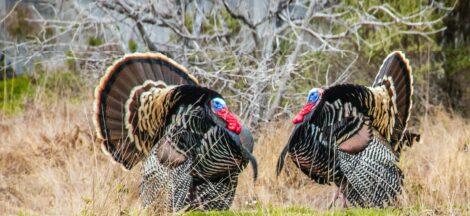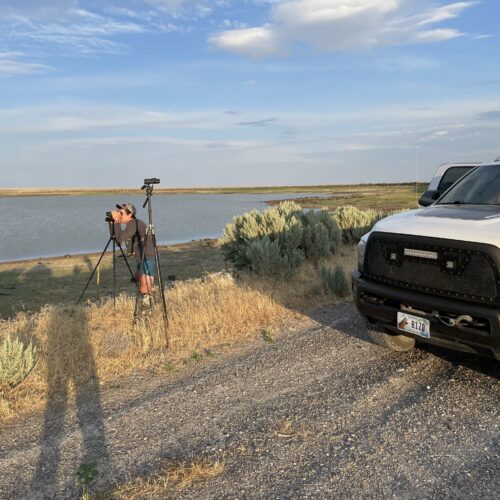Understanding State Regulations and Seasons for Deer Hunting
As a deer hunter, it’s crucial to understand and follow the specific regulations and seasons for each state where you plan to hunt. These rules ensure sustainable deer populations, promote ethical hunting practices, and maintain the quality of the hunting experience. In this comprehensive guide, we’ll delve into the importance of state regulations and seasons, how to find this information, and tips for staying informed on the latest changes. Let’s get started!
Table of Contents
- 1. Why State Regulations and Seasons are Important?
- 2. Finding State Regulations and Seasons Information?
- 3. License Requirements and Fees?
- 4. Hunting Methods and Equipment Regulations?
- 5. Bag Limits and Antler Restrictions?
- 6. Staying Informed on Changes to Regulations and Seasons?
1. Why State Regulations and Seasons are Important
State regulations and seasons for deer hunting serve several essential purposes, including:
- Conservation: Proper management of deer populations helps maintain a healthy and sustainable ecosystem. Overhunting can lead to negative impacts on both the deer population and their habitat.
- Public safety: Hunting seasons and regulations are designed to minimize conflicts between hunters and other outdoor enthusiasts, ensuring everyone’s safety and enjoyment of public lands.
- Enhancing the hunting experience: By regulating hunting practices and timing, states can help ensure a more enjoyable and rewarding experience for hunters, with better chances of success.
2. Finding State Regulations and Seasons Information
To find the specific regulations and seasons for deer hunting in a particular state, follow these steps:
- Visit the state’s wildlife agency website: Each state has a designated wildlife agency responsible for managing hunting regulations and seasons. These websites typically provide detailed information on hunting rules, seasons, licenses, and more. Examples include the Texas Parks and Wildlife Department, the Pennsylvania Game Commission, and the California Department of Fish and Wildlife.
- Consult the state’s hunting regulation booklet: Most state wildlife agencies publish an annual hunting regulation booklet, which provides a comprehensive overview of the hunting rules and seasons for that year. These booklets can often be found online, or in print at local hunting and sporting goods stores.
- Contact local wildlife officials: If you have questions or need clarification on specific hunting regulations, don’t hesitate to reach out to local wildlife officials or game wardens. They can provide valuable insights and up-to-date information on the regulations in their jurisdiction.
3. License Requirements and Fees
Each state has its own requirements for obtaining a hunting license, as well as associated fees. Here are some common factors to consider when applying for a hunting license:
4. Hunting Methods and Equipment Regulations
Each state has its own rules regarding the legal methods and equipment for hunting deer. These regulations may include:
- Firearm restrictions: States may have specific rules on the types of firearms allowed for deer hunting, such as caliber requirements, magazine capacity limits, or restrictions on certain firearm actions (e.g., semi-automatic rifles).
- Archery equipment: Bowhunters should be aware of regulations regarding minimum draw weights, arrow types, and broadhead specifications. Some states also have separate archery-only seasons, while others allow archery hunting during the general firearm season.
- Muzzleloader restrictions: Muzzleloader hunters should be familiar with rules regarding legal firearm types (e.g., flintlock, percussion cap, in-line), minimum caliber requirements, and allowed propellants (e.g., black powder, smokeless powder).
- Hunting methods: States may have regulations on the use of certain hunting methods, such as baiting, decoys, or the use of electronic calls. It’s crucial to understand and follow these rules to avoid unintentional violations.
5. Bag Limits and Antler Restrictions
Bag limits and antler restrictions vary by state and are important for maintaining healthy deer populations. Some common regulations include:
- Daily bag limits: Many states have daily bag limits, which dictate the maximum number of deer a hunter can harvest in a single day.
- Season bag limits: Season bag limits set the maximum number of deer a hunter can harvest throughout the entire hunting season.
- Antler restrictions: Antler restrictions, such as minimum spread or point requirements, are designed to protect younger bucks and promote a balanced age structure within the deer population. These regulations can vary by state, region, or even specific hunting units.
6. Staying Informed on Changes to Regulations and Seasons
Regulations and seasons can change from year to year as wildlife agencies adapt their management strategies to evolving conditions. To stay informed on the latest updates, consider the following tips:
- Subscribe to email updates: Many state wildlife agencies offer email subscription services that provide updates on hunting regulations, seasons, and other important information. Signing up for these updates can help ensure you stay informed on the latest changes.
- Follow social media accounts: State wildlife agencies often maintain social media accounts, which can be a great source for updates and reminders about hunting regulations and seasons. Consider following these accounts to stay in the loop.
- Attend public meetings: Wildlife agencies sometimes host public meetings to discuss proposed changes to hunting regulations and seasons. Attending these meetings can provide an opportunity to ask questions, voice your opinions, and stay informed on potential changes.
- Network with other hunters: Joining local hunting clubs or online forums can be a valuable way to share information, experiences, and tips with fellow hunters. These connections can help you stay informed on the latest changes to regulations and seasons, as well as provide insights into hunting strategies and techniques.
In conclusion, understanding state regulations and seasons for deer hunting is crucial for both the conservation of deer populations and ensuring a safe, enjoyable hunting experience. By familiarizing yourself with these rules, obtaining the necessary licenses and permits, and staying informed on any changes, you’ll be well-equipped for a successful and responsible deer hunting season.





 Must-Have Gear for Every Deer Hunter
Must-Have Gear for Every Deer Hunter